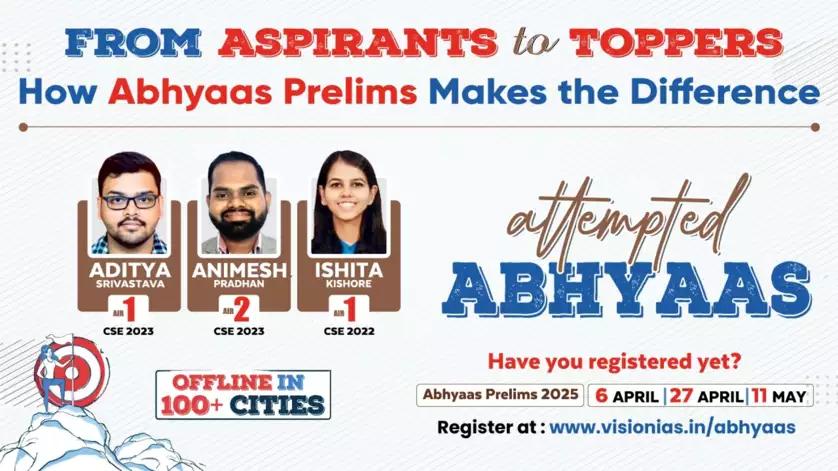What distinguishes a successful candidate in Prelims
The Civil Services Preliminary Examination, scheduled for 25th May 2025, is not merely a test of knowledge. It is a test of preparation quality, precision, and presence of mind under pressure. Each year, while lakhs of candidates appear with diligence and determination, only a select few move ahead—those who have successfully translated learning into performance.

Recognising trends and exam priorities: One of the consistent practices among successful candidates is their engagement with previous year question papers. They analyse trends in topic frequency, evolving question styles, and conceptual depth. This enables them to prioritise what truly matters and approach questions with an analytical mindset rather than relying solely on factual recall.
Streamlined and purposeful revision: Rather than overwhelming themselves with excessive content, toppers focus on core GS subjects—Polity, Economy, Environment, History, and Geography—and revise them in cycles. Using structured formats like visual summaries, mind maps, and synoptic notes helps improve retention while minimising confusion. The goal is clarity, not quantity.
Abhyaas Prelims 2025: Structured support for aspirants
While individual mock test practice builds familiarity, what truly enhances exam readiness is testing in a standardized, UPSC-like environment that offers objective feedback and nationwide benchmarking. This is where Abhyaas Prelims 2025 steps in as a valuable final-stage prelims preparation tool.
Simulated UPSC experience: Question patterns, difficulty level, and time constraints are closely aligned with the actual exam.
All India Ranking and benchmarking: Compete with serious aspirants nationwide to gain realistic self-assessment.
In-depth performance analysis: Section-wise insights help identify weak areas and improve test strategy.
A focused finish to a long journey
As the countdown to 25th May 2025 begins, aspirants must shift gears—from broad preparation to precision-focused practice. This final phase is not about accumulating more material, but about revisiting, refining, and reinforcing what has already been learned.






Comments